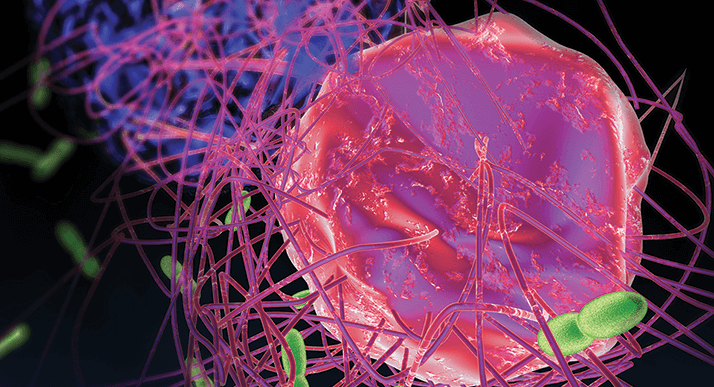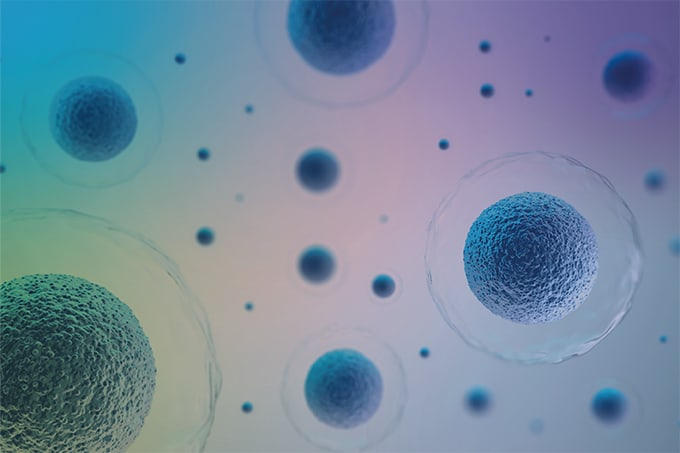
Felix Meissner is lead author of a recent paper (1) that describes how we can now listen to the full conversation between immune cells and not just the bits we like to hear. Meissner, who works in Proteomics and Signal Transduction at the Max Planck Institute of Biochemistry in Martinsried, Germany, briefly explains the research and its significance.
Why? We were curious whether our mass spectrometry technology was sensitive enough to compete with antibody-based tools, such as ELISA, to determine cytokine levels expressed by macrophages when exposed to a bacterial compound. Unexpectedly, we detected way more secreted proteins than we ever thought, enabling a systematic analysis of signaling adaptor functionality. [Signal adaptor proteins are accessory to main proteins in a signal transduction pathway]. What? We chose TLR4 signaling which is a relatively low complexity example of protein secretion. It is well studied and several secreted proteins were already known, so it offered a great system to benchmark our technology. How? We used UHPLC (Easy nLC) coupled to a Q Exactive Orbitrap MS and a nanoelectrospray ion source (Thermo Scientific) – it’s just the best combination! We analyzed the raw data files with our in-house software – MaxQuant (www.maxquant.org). For statistical hypothesis testing and data presentation, we used a combination of R programming, our in-house software, Perseus, and Graphpad’s Prism. What next? Now comes the really interesting part… We expanded our research and analyzed protein secretion in response to other pattern-recognition receptor ligands and also in real infection settings. We were very surprised by the fact that known secreted proteins, such as interleukins, cytokines and growth factors, comprise only a minority of the secreted protein content. Given that in biology things happen for a good reason, this observation implies that there are many more proteins with extracellular functions. We are now testing these unexpected extracellular proteins for the capacity to modulate immune function. RW
Further information
Full research paper: F. Meissner et al., “Direct Proteomic Quantification of the Secretome of Activated Immune Cells,” Science, DOI: 10.1126/science.1232578 (2013).




